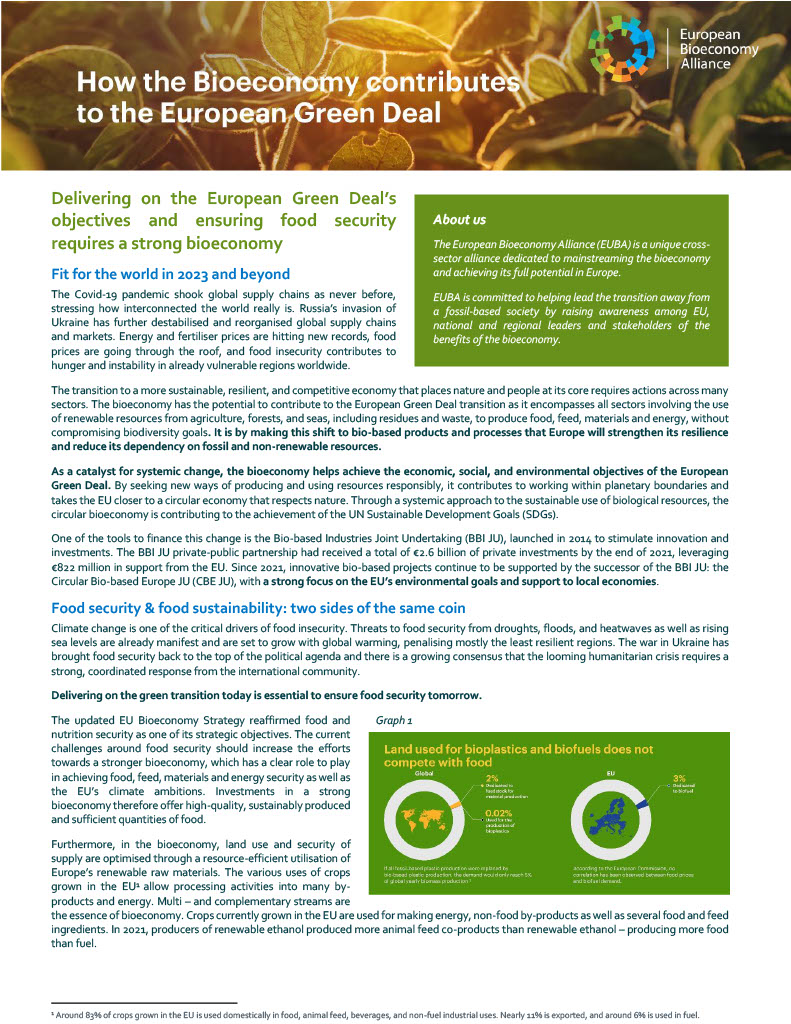How the EU bioeconomy contributes to the European Green Deal
ePURE joins other members of the European Bioeconomy Alliance in publishing a new paper that illustrates in facts and figures the many ways the EU's bioeconomy sector is delivering on the ambitions of the Green Deal. 
The transition to a more sustainable, resilient, and competitive economy that places nature and people at its core requires actions across many sectors. The bioeconomy has the potential to contribute to the European Green Deal transition as it encompasses all sectors involving the use of renewable resources from agriculture, forests, and seas, including residues and waste, to produce food, feed, materials and energy, without compromising biodiversity goals. It is by making this shift to bio-based products and processes that Europe will strengthen its resilience and reduce its dependency on fossil and non-renewable resources.
As a catalyst for systemic change, the bioeconomy helps achieve the economic, social, and environmental objectives of the European Green Deal. By seeking new ways of producing and using resources responsibly, it contributes to working within planetary boundaries and takes the EU closer to a circular economy that respects nature. Through a systemic approach to the sustainable use of biological resources, the circular bioeconomy is contributing to the achievement of the UN Sustainable Development Goals (SDGs).
Read the full report from the European Bioeconomy Alliance here.
